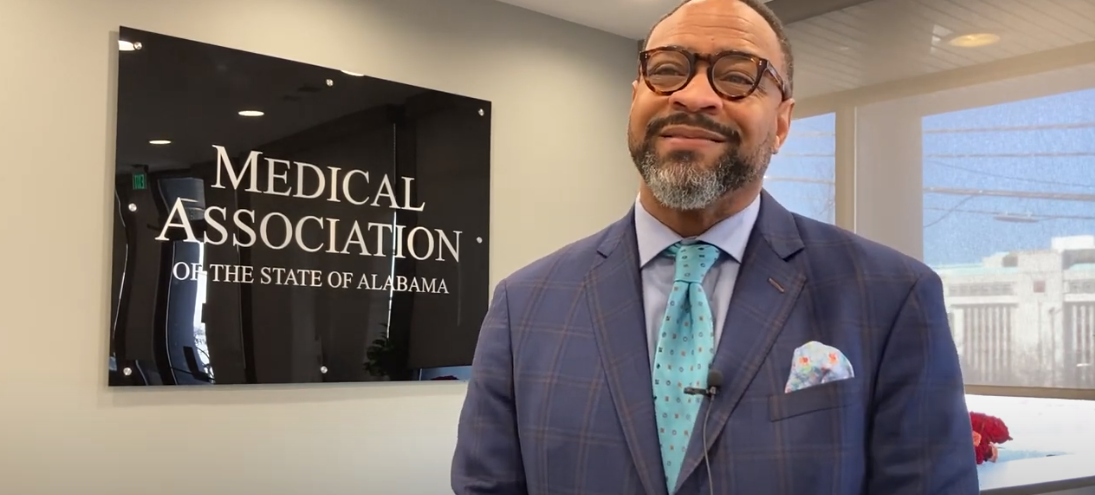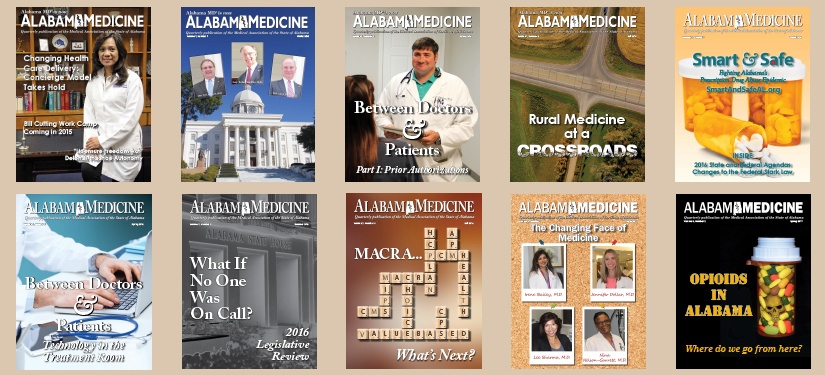Category: Official Statement
-

Dr. Brittney Anderson Appointed to Board of Trustees for the Alabama School of Healthcare Sciences
Gov. Kay Ivey has appointed Brittney Anderson, M.D., of AndersonFamily Care in Demopolis, to the board of trustees of the Alabama School of HealthcareSciences. The newly established school will be located in Demopolis and offer Alabama studentsa high school experience that trains them to enter an in-demand medical career or topursue higher education after graduation.…
-

Medical Association Unveils ‘Your Care is at Our Core,’ Emphasizing Personal Connection in Health Care
83% of Alabamians Agree: Doctor-Patient Relationship is ‘Central’ to Health A strong bond between doctors and patients leads to better health care, say Alabama doctors. A new awareness campaign launched by the Medical Association of the State of Alabama called “Your Care is at Our Core” reinforces this important message. A doctor-patient relationship based on…
-

Gov. Ivey Declares March 30 “Doctors Day” in Alabama, Doctors Share Stories of Why They Became Physicians
Gov. Kay Ivey has proclaimed March 30 as “Doctors Day” in Alabama and doctors are celebrating the occasion by sharing personal stories about why they chose medicine for their profession. In a video released by the Medical Association of the State of Alabama, several doctors say as they were growing up it was their own doctors who…
-

Statement by the Medical Association of Alabama on the Recent Alabama Supreme Court Ruling on the Legal Status of Embryos
The Medical Association of the State of Alabama expresses concern over the recent Alabama Supreme Court decision regarding the legal status of embryos, as it relates to In-Vitro Fertilization (IVF) procedures that may result in a woman becoming pregnant. The significance of this decision impacts all Alabamians and will likely lead to fewer babies—children, grandchildren,…
-

Opioid Prescriptions in Alabama Fall for 8th Consecutive Year
Contact: Jeff Emerson, 205-540-2247MONTGOMERY – Alabama physicians are taking action to reduce the number andpotency of opioid prescriptions and to increase access to medication that rapidlyreverses opioid overdoses, according to a new report released Thursday from theAmerican Medical Association. The report shows:• Opioid prescriptions in Alabama decreased 41.6 percent from 2012-2021. From2020-2021, opioid prescriptions in…
-

Medical Association Supports Continued Funding for Maternal Death Investigations
‘Shocking’ Nearly 70% of Deaths Are Preventable, Experts Say MONTGOMERY – The Medical Association of the State of Alabama today joined Alabama legislators in calling for continued state funding to investigate why Alabama mothers die from childbirth and pregnancy complications at more than double the rate of women nationally. The funding for this research,…
-

Partnering with ALAHA to Celebrate 2021 Doctors’ Day
Today is a day set aside nationwide to honor the physicians who care for us every day of the year. Doctors’ Day was established on March 30 in 1934, and later in 1991, President George H.W. Bush proclaimed National Doctors’ Day as a time for the nation to celebrate the dedication and leadership of physicians. …
-

Report: 34 Percent Decline in Opioid Prescribing since 2014
FOR IMMEDIATE RELEASE CONTACT: Mark Jackson, Executive Director (334) 954-2500 CONTACT: Mallory Camerio, Director of Communications (334) 954-2580 Report: 34 Percent Decline in Opioid Prescribing since 2014 According to a new report released by the American Medical Association, Alabama physicians have reduced opioid prescribing by 34.4% since 2014, increased the use of state prescription drug…
-

President’s Statement on Coronavirus COVID-19
We now have thirty-two confirmed cases of the new coronavirus infection in Alabama. We have all seen how this new virus has spread around the world from its beginning in China just a few months ago. The World Health Organization has now classified this as a pandemic. However, please remember that compared to the flu,…
-

Alabama Medicine Magazine Receives International Award
Alabama Medicine magazine has received the 2017 APEX Award for Publication Excellence. APEX 2017 is the 29th Annual Awards for Publication Excellence based on excellence in graphic design, editorial content and the ability to achieve overall communications excellence. This international competition is sponsored by Communications Concepts. There were 1,361 entries evaluated in 11 major categories…